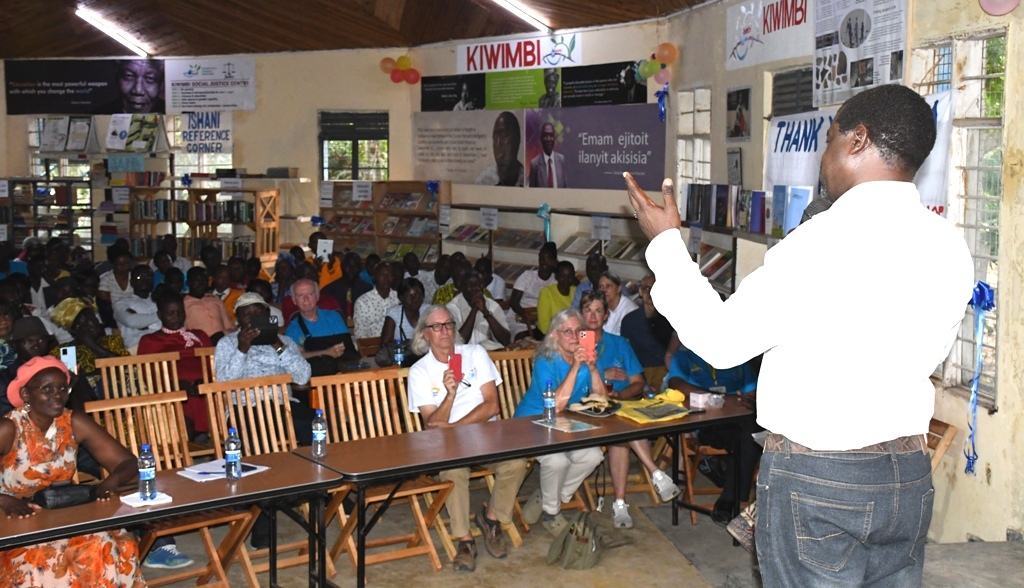Children are the basic format of the society, and as the common saying goes, they are the future generations. And as much as children hold the fabric that clothes the future, they need special nurturing, proper care and a direction for growth, to thrive and develop into responsible and industrious adults.
To enable a safe environment for children, resources are required, and most and if not all times, limited donor funding and support is relied upon. Such circumstances have led to a need for innovative measures to ensure that children’s needs are supported adequately in children’s homes.
One such innovation has been developed by Martha Green, a 74-year-old African American retired civil servant from the United States of America, now entrepreneur and founder of the Christian Children’s Home in Kandisi, Ongata Rongai in Kajiado County. She is running a social enterprise specialized in selling African themed brown dolls to support the children’s home.
She stated that the concept was inspired by the fact that at one point, she was looking for toys for the children and couldn’t find any dolls that she felt would relate to the African identity of the children.
“When I started looking for toys for the girls, I couldn’t find any brown (African) dolls anywhere, so I decided to start bringing them,” she says.
Bubblegum Kids is a social enterprise founded by Green that believes in self-acceptance and pride in African heritage and culture.
“The purpose of bringing the brown dolls is to show the children how beautiful they really are in their own skin colour, and that they are more beautiful than the white dolls in the supermarkets,” she notes.
Green notes that African culture has faded away and western culture has been adopted, which, according to her, is not good as not everything from the West is always the best.
“It’s not just about the brown dolls. Kenya has abandoned their original mindset, and their traditions have accepted western themes and thoughts. I don’t understand that because I think the African mystique is beautiful and better than anything white and from the West,” she says.
She sources the dolls from China, and sells them locally dressed in Kitenge African attire.
However, Green feels that the brown dolls she sources in China are not as ideal as she may have wanted, as they still do not represent the African physique.
She hopes to find a representation of the African physique in South Africa in November as she attends an upcoming conference.
“At the moment, China is the only option we have. In November, I’m planning to go to a Toy Expo in Cape Town, to see if I can find a manufacturer that is making dolls, so that I can place an order. My order will include different facial structures, features, and even lips, eyes, as we are not all the same,” she notes.
She states that her enterprise seeks to support the children in her home, both occupationally and financially. The children make the clothes for the dolls, which are sold and in turn support the home.
On the background of the children’s home, Green states that she was moved to start the home in 2000 when she relocated to Kenya from the US. The thought came after seeing numerous TV commercials on hungry children in Africa that would air on US channels on Sundays.
“Every time I saw a starving Ethiopian baby on a TV commercial, I always wanted to do something as much as I could to help as many children as I can and that’s why I’m here. That’s why I live here with these people,” she says.
At 52, Green wanted to make a difference when she stepped into Kenya as a retired civil servant with intentions of helping orphaned and vulnerable children, and now, at 74, she is well into the journey.
She also stated that they only have five donors, including herself, that support the children.
“I do treat them like my own children and I use my own pocket to make sure they get what they need. We have only five donors, but they never go to bed hungry,” she adds.
The home is a shelter to 24 children aged between 2-10. The home is capable of having up to 60 children.
On asking Green about her plans about the Bubblegum Kids shop, she stated that she intends to work with local tailors to make doll clothes and accessories such as bad and hair ties, and she projects to expand and open more stores across the country.
For young people who would be interested to join her enterprise and support her work, Green explains that she is looking for honest individuals of high integrity, and willing to work.
She calls upon young people to believe in themselves and shun what she deemed as “eastern thinking”, which she explained as how African nations depend heavily on external investments to develop the country, yet the locals too can develop the country.

